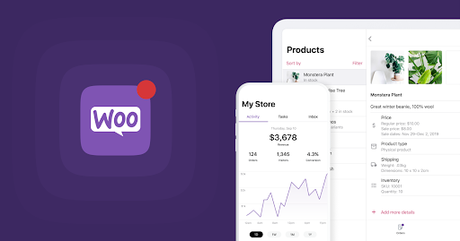Many eCommerce businesses, regardless of the size, try and discover their right open source eCommerce platforms. One of the upsides of open source is it ensures the fees will not be too high even if you pay.
So, what open-source platforms should you use now? Here, we curate a list of the top picks out there these days. Check them out!
What to consider when choosing an eCommerce platform

You should think about these features when selecting a platform:
Work on a unified platform: An open-source platform should deliver unified eCommerce, web-based point of sale software, marketing, inventory, order management, accounting, customer service, and merchandising.
Provide intelligent order management: It lets customers buy, fulfill, and return their purchases most conveniently.
Offer a comprehensive customer view: A decent platform usually gives targeted marketing, consistent experiences, and high-quality support service.
Aid in bottomless expansion: That means full support delivered for different business models, locations, channels, languages, and currencies on a single platform.
Ensure site security: Consider the one that provides PCI compliance and an SSL certificate. With it, your store and customer information will stay secure.
Top 5 best open source eCommerce platforms
Different choices have their advantages and drawbacks. Delve into them to find out your best fit.
1. Magento – Open source e-commerce

A lot of online businesses regard Magneto as the most notable eСommerce platform for good reasons. As of now, it takes more than 25% of the e-Business software market. In other words, this platform is an industry leader.
It offers various add-ons and plugins. Likewise, the Magento open source allows you to use different supporting languages and currencies and control many modules and stores. Generally speaking, you benefit from unlimited scalability.
It is worth mentioning that Magento is great for sizable firms to manage plenty of traffic and receive fantastic technical, setup, and troubleshooting support. It works for medium and small businesses. The Community Edition lets you leverage many features with no charges.
What you may like:
- Quite simple to use
- Greatly supported
- Marketing-friendly
- Customizable and scalable
- Enable third-party integrations
What you may not like:
- It is older, implying the options it offers is not as numerous as the newest platforms
2. PrestaShop – Open source e-commerce
PrestaShop is one of the most well-known open-source eCommerce platforms. Over 300 thousand eCommerce sites in the world run on this one. It has vast popularity in Latin America and Europe. PrestaShop is likewise preferable among merchants in hundreds of countries, justifying why it is available in about seventy languages.
This platform boasts an intuitive admin panel. You install your eCommerce website in a breeze. Thanks to the accessibility of fully hosted and self-hosted options, you can define the technical control level. They are both free.
What you may like:
- Offer a large number of templates and modules
- Enable cross-selling
- Enable you to sell downloadable products, for example, music and digital books
- Allow for one-page checkouts and support shipping discounts
- Provide full backend support
What you may not like:
- Either buy add-ons or employ a developer to handle custom work
- Not suitable for customizing every little feature
3. WooCommerce – Open source e-commerce

If WordPress is your thing and you plan to start an eCommerce business, you may want to consider WooCommerce. It is the most well-loved WordPress plugin. Plus, WooCommerce has an impressive user community.
Even with your limited technical knowledge, it is simple to install and monitor your online store. That is why this platform is one of the best bets for startups.
What is more? WooCommerce is mobile-friendly. Thus, your online store visitors have no difficulty using their mobile devices to make orders from their mobile devices. Your sales grow accordingly. Further, thanks to the add-ons, you can develop a dedicated mobile app with your products.
What you may like:
- Provide many themes and plugins
- Allow for third party integration
- An active community forum that assists in problem-solving
- Smooth WordPress integration
- Pretty simple to scale
- Super mobile friendly
What you may not like:
- Only works with WordPress
- You may need paid extensions to benefit from the platform as much as possible.
4. OpenCart – Open source e-commerce
It is another best open-source eCommerce platform 2021 when offering upwards of fifteen thousand impressive modules and themes. What is likewise great is, over 150 thousand live eCommerce stores work on this platform, with an increase of nearly six percent in the number of online shops in the year’s third quarter.
Small online retailers with little-to-no technology-related experience cannot go wrong with OpenCart. It is effortless to set up. Furthermore, its essential eCommerce functions may be remarkable for starting your first online store.
Solid store management is another advantage. The platform comes with the order and product management, marketing, and promotional features. Besides, it is multilingual and enables the use of different currencies and payment methods.
What you may like:
- Easy to install and run
- Run fast
- No need for much technical know-how
- Customizable
- Many plugins for extra flexibility
What you may not like:
- It is older, implying the options it offers is not as numerous as the newest platforms
- May need to hire a developer to help leverage some features
5. NopCommerce – Open source e-commerce
Based on Microsoft technologies, this platform has been around for twelve years. The company has cemented relationships with over 150 partners all over forty countries. It also plays a part in launching upwards of sixty thousand live online shops. During its twelve years out there, nopCommerce drew over 250 thousand people to join its global community. It boasts at least three million downloads as well.
Better yet, the platform sees a continuous improvement with updates every half a year. You may like nopCommerce’s rich integrated functionality, indefinite customizability, warehouse control, marketing tools, integration with different shipment and payment services, marketing tools, warehouse management, and then some.
What you may like:
- Customizability and functionality
- Large community
- Regular updates
- Free
What you may not like:
- Decent coding knowledge is needed if you plan to do many customizations
- More favorable to run with Windows server infrastructure environments
- Only a limited number of free templates
- Only basic CMS functionality
Conclusion
Many store owners pay special attention to the process of selecting open source eCommerce platforms. It is currently not hard to create an eCommerce site. Yet, your business will suffer harm soon in case you choose an inappropriate open-source platform. That is why make sure you check out the options above and determine which is your best fit.
Interesting Read
6 Best SaaS Tools For Your Startup
Top 15 Tools That Are Essential for Freelancers
